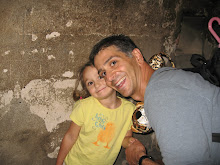I have already written about the problems of defining education strictly as job-preparation (see my September entry entitled “The Essentials”). But job-preparation is often what college-aged students expect out of education. Practical skills are self-explanatory but the humanities aren’t. What the humanities impart is something a bit deeper than job-preparation. In many respects they are life-lessons.
Take fairy tales, for instance. Despite the commonplace idea that fairy tales are for children, in their natural context, their listeners were adults. A person needs to have some experience of life to see the wisdom in fairy tales.
Take any authentic fairy tale (not one that was artificially composed as a narrative for children, such as a Dora the Explorer episode). For the sake of argument, Beauty and the Beast, which is found throughout Europe. Everyone knows the outline of the story: to protect her family a young girl finds herself in the household of an older, frightening creature. At first, she seems powerless, and he appears all-powerful. But in truth, she is the powerful one. Through her love, she transforms him into a kind man. This isn’t actually a story about magic at all. Arranged marriages were common throughout Europe until recent centuries. Beauty and the Beast is about a successful arranged marriage from the point of view of the wife—specifically, from the point of view of the wife long after the fact. Only someone who had already lived through it could tell the tale. It is the wisdom of the aged passed on to someone facing a similar difficulty.
Beauty and the Beast highlights a problem facing the humanities right now. Society has changed so much since the story was developed—is it even relevant? Should we still bother with a narrative about arranged marriages in a time when arranged marriages are no longer the norm? Of course, discussing Beauty and the Beast about only arranged marriages is highly reductive. The stories are more than simply what they’re about.
Take fairies. Opinions differ, but one common belief is that they were originally the minor gods of the pre-Christian nature religions. Again, our culture no longer follows a nature religion, by and large. Is there value in these tales? The word “fairy” is derived from the Latin word fata, which is etymologically related to fate (fatum). Conceptually speaking, fairies were forces that affected one’s destiny. Central to the stories is the interaction between will and destiny, not good and evil. An encounter with one changed the course of a person’s life. Sleeping Beauty was cursed to sleep for 100 years—that was bad. But then the prince broke the spell and she awakened—that was good. This is a teaching of fairy tales that is still relevant: what is a curse one moment can be a blessing later (and vice versa). One’s weakness is really one’s strength.
The humanities are essential to any education because they pass life experiences from one generation to the next. They are guides to life difficulties which youth are likely to face
Saturday, November 28, 2009
Subscribe to:
Post Comments (Atom)




No comments:
Post a Comment
Note: Only a member of this blog may post a comment.